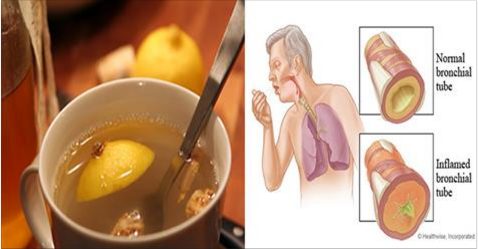Three cheers for flu season! The chilly months of autumn bring a host of illnesses that make our throats phlegmy and our noses runny. Whether you have a cold or flu, sitting at your desk amidst an ocean of tissues, or coughing your way through every conversation can put a real damper on your day. But honey, lemon water, and ginger can provide incredible relief to excess mucous.
Excess mucus is a common symptom of viral infections, seasonal allergies, and smoking-related conditions. If you suffer from excess mucus, you can often determine what could be causing it by examining the color, quantity, and consistency of your mucous, we know, not an appealing task. Luckily, these four powerful ingredients can reduce excess phlegm and mucous in your lungs, nose, and throat.
BENEFITS OF DRINKING WATER
The number one piece of advice that medical scholars recommend is to increase your intake of water. Water can loosen and wash down any phlegm in the throat and back of the mouth. Water also can clear the toxins that are contributing to your illness.
Drinking cold water can boost your metabolism and aid your immune system, and drinking warm water can regulate your body temperature.
BENEFITS OF GINGER
Ever find that you’re no longer sick, but you still have that extra mucus? Ginger is known to reduce a headache caused by the congestion of your sinuses. Ginger reduces the build up of phlegm that is left behind after the recovery from an infection.
Ginger provides a significant boost to the entire system, and oleoresins, the active components in ginger, are commonly found in most cold and flu remedies. Ginger is also known to stimulate circulation, which can encourage any excess mucous to be released from the lungs.
Chills and fever can be reduced by ginger. Morning sickness and inflammation can also be eliminated with regular consumption of ginger. And those with respiratory problems such as asthma have been known to find relief with ginger.
BENEFITS OF HONEY
Honey is commonly deemed a “superfood” for its antifungal, anti-inflammatory and antibacterial benefits. Also being rich in antioxidants and flavonoids, it is often used to treat hay fever and seasonal allergic reactions. It is also used as a treatment of persistent ulcers and wounds.
Honey contains a probiotic bacteria called Lactobacillus kunkeei, which is known to boost the immune system. You should always opt for raw honey over refined honey. Raw honey is not heated or filtered, so the probiotic bacteria will still be active in the honey. The healthy bacteria will secrete numerous natural compounds to kill off bacteria that threaten their territory.
Honey is known to reduce phlegm and mucous, but we also know the feeling of a sore throat after incessant coughing. Honey soothes those roughened muscle linings. Don’t forget that honey is nature’s sweetener; it can make any morning brew taste great.
BENEFITS OF LEMON
Lemon is known to be very beneficial to the immune system, being rich in vitamin C and potassium. Lemon also has anti-inflammatory and antimicrobial properties, which can cleanse mucus and regenerate the immune system.
Lemon can control blood pressure, stimulate nerve function and will balance pH levels in the body. Lemon will prevent dehydration and adrenal fatigue when your lymph system is hydrated your stress levels will be reduced, and your hormones can be regulated.
RECIPE FOR LEMON-GINGER-HONEY DRINK
This recipe will create 2-3 servings
Prep time: 15 minutes
INGREDIENTS:
- 100 grams of honey
- 100 ml of water
- 4 tbsp. of freshly squeezed lemon juice
- 1 inch of ground ginger
INSTRUCTIONS:
- Mix the ground ginger and water.
- Boil the mixture for ten minutes.
- Once it has cooled, add the honey and lemon juice, then leave overnight.
- Store the drink in the fridge; you can use it for up to a week.
Consume 30-40 mL of the drink on an empty stomach every morning. Once consumed for 40 days, your immune system will be boosted. Take a break for two weeks, and then continue the treatment for an additional 40 days.
